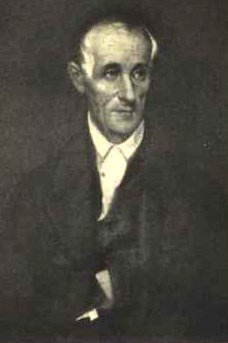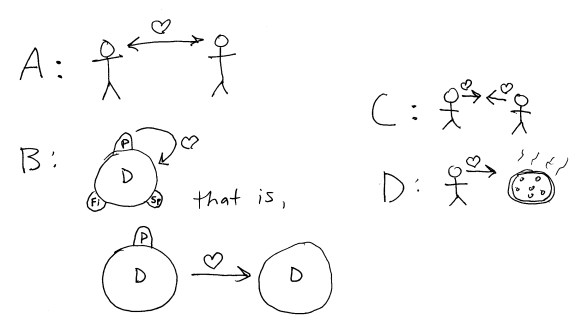podcast 260 – How to Argue that the Bible is Trinitarian
Can it be easily shown that the Bible implies that God is tripersonal?
Can it be easily shown that the Bible implies that God is tripersonal?
In 1 Corinthians 8:6, Paul says, …yet for us there is one God, the Father, from whom are all things and for whom we exist, and one Lord, Jesus Christ, through whom are all things and through whom we exist. Is this statement by Paul a gift to unitarians (who hold that the one God is the Father, but not Jesus), or does he here… Read More »podcast 15 – Are Paul’s “one God” and “one Lord” one and the same?

What, if anything, is wrong with with the strategy of Resolution through Rational Reinterpretation? And why are most theologians so cold towards this strategy, while most Christian philosophers love it? Consider this quote by Moses Stuart on one of Leibniz’s takes on the Trinity:
The celebrated Leibniz was requested by a Loefler, who had undertaken to refute the writings of a certain English Antitrinitarian, to give him an affirmative definition of the persons in the Godhead. He sent for answer the following: – “Several persons in an absolute substance numerically the same, signify several, particular, intelligent substances essentially related.” On farther consideration, he abandoned this, and sent a second, which was, – “Several persons, in an absolute substance numerically the same, mean relative, incommunicable modes of subsisting.”
If Leibniz actually understood this, I believe he must have been a better master of metaphysics than any person who has ever read his definition.Read More »Dealing with Apparent Contradictions: Part 8 – Rational Reinterpretation, cont.
It has occurred to me that many readers, especially new readers, may misread my ongoing discussion of modalism and modalists. As I use the term “modalism”, it is a descriptive term for how some people think about one or more of the Father, Son, and Holy Spirit. Most people, though, use it as a tag for a certain heretical theology, long denounced by mainstream Christianity.… Read More »modalism and “modalism”

“If I think of pork-products, is that a self-conscious act of thinking?”
What follows is the first of a two part post.
Part 1: The Divine Word as Divine Practical Knowledge
Part 2: If God Weren’t a Trinity, then Creatures Would Necessarily Be Created.
Part 1
In pre-Nicene days (and post-Nicene days) there was much debate about the ontological status and (narrative) identity of the Son of God. One branch of discussion focused on the Apostle John’s claim that the Son of God is the Word of God. In various places in the New Testament the Son of God is identified as the agent through whom the Father creates the world, which is equivalent with saying the Word of the Father and the Father create creatures.
From these sources a ‘Logos-theology’ was born (that you can read about in the history books). The Logos is that by which creatures are created, have their existence and persistence in existing.
Now, Henry takes up the question as to whether the Word is ‘practical knowledge’. Henry generally gets his definitions of kinds of knowledge from Aristotle. From Aristotle we learn about three kinds of knowledge: speculative knowledge, practical knowledge and productive knowledge.
Catholic analytic philosopher Tim Pawl (University of St. Thomas, in Minnesota) argues that this is logically consistent: Jesus has both a divine and a human nature.
His answer is challenged by another talented young Catholic philosopher, Tomas Bogardus, of Pepperdine University. With their permission, I’ve reposted their dialogue from Facebook. I thought it deserved a wider audience.
From that same thread, I learned that Dr. Pawl is working on a book on the metaphysics of the Christology that comes from the “ecumenical” councils. I’ve thought and taught a good bit about those in recent years, and plan to discuss them in upcoming podcasts, so I look forward to seeing this book, and the discussion it will generate.
Which is mightier – this beard or this one?
You decide. I’ll weigh in with a comment later.
Here, unedited but for the addition of a few explanatory links (and a gratuitous picture), is their dialogue:Read More »Tim Pawl: a God-man is possible
Want to debate (or just refute) me? Here are some things you should study.

Four vivid, moving, memorable depictions of Love.
A post on some previous post commentary – no one can navel-gaze like a philosopher! 🙂 Here’s a pictorial recap, and some additional thoughts on the comments here, in response to Scott and JT. The point of all this: we’re exploring why people who call themselves “social trinitarians” don’t like what they call “Latin” theories, and specifically the claim that those “Latin” theories can’t do justice to the loving relationships between the persons of the Trinity.Read More »on interpersonal love and stick figures (Dale)
Have either of two philosophically astute bloggers refuted the Challenge to “Jesus is God” Apologists?
Another take on James White’s arguments that Jesus is Yahweh.
A forgotten 4th c. debate: Is the Logos of John 1 a divine being in addition to God, or a power and energy of God?
 A few thoughts on re-reading Sudduth’s open letter explaining his conversion.
A few thoughts on re-reading Sudduth’s open letter explaining his conversion.
Saith Sudduth,
Krishna is the all-attractive Absolute who is manifested in the different religious traditions of the world. There is merging into impersonal Brahman. There are also distinctly theistic experiences in which the self encounters a personal God.
The ultimate being is either personal or not. Thus, it can’t be that both the aforementioned experiences are veridical, i.e. represent God as God really is.
I think Sudduth agrees; he goes on to explain that “merging” experiences are something like the devotee coming in contract with what some would call the “energies” of God. Of course, Indian philosophers like Sankara would disagree. And I don’t know why we should accept Sudduth’s claim that:
…that transcendental consciousness (the aim of nearly all religious traditions) is in fact variegated in nature.
I don’t know that there is any one general sort of experience which nearly all traditions aim at. Experiences of a loving god are not at all like the sorts of experiences monistic types profess, wherein, they say, Read More »A Few Thoughts on Sudduth’s Open Letter
This time, Dr. Smith’s thoughts on the debate. He argued for the minority view that the New Testament doesn’t teach Jesus’s literal pre-human existence.
Opening statements and rebuttals.
These two. Atheist blogger Hemant Mehta explains how this happened. (H/T James McGrath) And he makes an interesting point about it. Yes, I would be shocked too. (Read to the end of his post.) But, I think Christians and Christians publishers should promote debate. Anyone who is confident in their case is all for debate. Update: Justin Brierley’s show Unbelievable has put up part 1 of a… Read More »Pro and Con books published at once – How’d that happen?
Dr. White vs. John on the thesis of the 4th gospel.
Sometimes, all your main interests converge. Books? Check. Computers? Check. Philosophy and theology? Check. History? Check. The result: http://trinities.org/books.Read More »Books